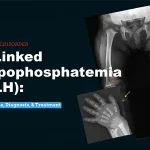Prostate cancer is one of the frequently diagnosed cancers in males all over the world, especially in men above the age of 50. It occurs in the prostate gland, a small walnut-sized organ that synthesizes seminal fluid. While many prostate cancers grow slowly, some are aggressive and can spread to bones and other organs.
Major Subtypes of Prostate Cancer:
- Localized Prostate Cancer
- Advanced or Metastatic Prostate Cancer (mCRPC)
- Castration-Resistant Prostate Cancer (CRPC)
Hormone-Sensitive - Prostate Cancer (HSPC)
In the past decade, the treatment of prostate cancer has undergone remarkable changes. The approval of new drugs has greatly improved survival in the advanced and treatment-resistant stages, making the care much more tailored and effective.
Standard Treatments for Prostate Cancer:
Initial treatment options are based on the stage, PSA levels, Gleason score, and age/health of the patient. Here are commonly used treatments:
- Active Surveillance – Watching and waiting in low-risk cases.
- Surgery – Prostatectomy, where the gland is cut out.
- Radiation Therapy – Brachytherapy and external beam.
- Androgen Deprivation Therapy (ADT) – Reduces testosterone production.
- Chemotherapy – Usually done in advanced or metastatic cases.
- Immunotherapy & Targeted Therapy – Done in cancers unresponsive to treatment.
Newly Approved Medicines for Prostate Cancer:
Below are some of the most advanced and promising medicines for the treatment of prostate cancer, along with their type, indication, mechanism of action, and state of approval:
Pluvicto (lutetium Lu 177 vipivotide tetraxetan):
- Type: Targeted Radioligand Therapy
- Indication: PSMA-positive metastatic castration-resistant prostate cancer (mCRPC)
- Mechanism: Delivers radioactive particles directly to PSMA-expressing prostate cancer cells. It minimizes the damage to healthy cells
- Approval: FDA-approved for use after other standard treatments
Xtandi (enzalutamide):
- Type: Oral Androgen Receptor Inhibitor
- Indication: mCRPC and non-metastatic CRPC
- Mechanism: Blocks androgen receptor signaling to block the growth of cancer cells
- Approval: FDA- and EMA-approved for use in advanced prostate cancer
Zytiga (abiraterone acetate):
- Type: CYP17 Inhibitor
- Indication: Metastatic CRPC and high-risk metastatic hormone-sensitive prostate cancer
- Mechanism: Blocks androgen production by inhibiting the CYP17 enzyme
Approval: Approved in beyond 100 countries
Nubeqa (darolutamide):
- Type: Next-Generation Androgen Receptor Inhibitor
- Indication: Non-metastatic castration-resistant prostate cancer (nmCRPC)
- Mechanism: Inhibits androgen receptors within the low blood-brain barrier passage zone, which reduces adverse reactions
- Approval: Approved by FDA and EMA
Erleada (apalutamide):
- Type: Oral Androgen Receptor Inhibitor
- Indication: Non-metastatic CRPC and metastatic castration-sensitive prostate cancer (mCSPC)
- Mechanism: Prevents the activation of androgen receptors, and disease progression is postponed
- Approval: Approved globally for mCSPC and nmCRPC
Orgovyx (relugolix):
- Type: Oral GnRH Receptor Antagonist
- Indication: Advanced prostate cancer
- Mechanism: Avoids the initial flare-up of testosterone suppression seen in LHRH agonists.
- Approval: FDA-approved for adult patients with advanced prostate cancer
Jevtana (cabazitaxel):
- Type: Taxane Chemotherapy
- Indication: mCRPC previously treated with docetaxel
- Mechanism: Inhibits microtubule function, preventing cancer cell division
- Approval: FDA- and EMA-approved; standard for docetaxel-refractory prostate cancer
Talzenna (talazoparib):
- Type: PARP Inhibitor
- Indication: mCRPC with BRCA1/2 or ATM gene mutations
- Mechanism: Blocks PARP enzymes critical to DNA repair in unhealthy cells
- Approval: Approved in combination with enzalutamide (2023)
Lynparza (olaparib):
- Type: PARP Inhibitor
- Indication: HRR gene-mutated metastatic CRPC
- Mechanism: Prevents DNA repair in unhealthy cells with BRCA1/2 mutations
- Approval: Approved for patients with specific gene mutations (FDA & EMA)
Rubraca (rucaparib):
- Type: PARP Inhibitor
- Indication: BRCA-mutated mCRPC following androgen receptor-directed therapy
- Mechanism: Blocks PARP proteins, leading to DNA damage and unhealthy cell death
- Approval: FDA accelerated approval (withdrawal from prostate cancer indication in 2023)
Camcevi (leuprolide mesylate):
- Type: GnRH Agonist Depot Injection
- Indication: Advanced prostate cancer
- Mechanism: Reduces testosterone production by downregulating pituitary signaling
- Approval: FDA-approved; offers 6-month depot dosing
Relugolix + Enzalutamide:
- Type: Oral Combination Therapy
- Indication: Advanced prostate cancer
- Mechanism: Dual mechanism: testosterone suppression + androgen receptor inhibition
- Approval: Recently studied and recommended in advanced mCRPC protocols
Provenge (sipuleucel-T):
- Type: Autologous Cellular Immunotherapy
- Indication: Asymptomatic or minimally symptomatic mCRPC
- Mechanism: Stimulates patient’s immune system to target prostate cancer cells
Approval: FDA-approved; first immunotherapy approved for prostate cancer
Docetaxel (generic):
- Type: Taxane Chemotherapy
- Indication: Metastatic hormone-sensitive prostate cancer and mCRPC
- Mechanism: Interferes with microtubule assembly, halting cancer cell division
- Approval: Global standard of care in advanced disease
Lupron Depot (leuprolide acetate):
- Type: LHRH Agonist
- Indication: Advanced prostate cancer
- Mechanism: Reduces testosterone levels after initial surge
- Approval: Widely approved and commonly used in ADT
Accessing New Prostate Cancer Treatments in India and Globally:
Some advanced treatments might still not be available in some countries, or they might be too expensive. But patients and doctors can access these treatments through Named Patient Programs (NPP), which legally allow the import for individual medical use.
Indian Pharma Network (IPN) specializes in providing legal access to new and hard-to-obtain medicines through the Named Patient Management Program.
IPN delivers safe, legal, and compliant access to all the high-priority medicines for prostate cancer, be it Pluvicto, Talzenna, Nubeqa, or Provenge.
If you or a loved one has been diagnosed with Prostate cancer and urgently needs access to a newly approved or investigational treatment not available in your country, Indian Pharma Network (IPN) is ready to support you. Contact us to explore your Prostate cancer treatment options today.
Disclaimer: This content is for informational purposes only and should not be seen as medical advice. For an individualised course of treatment, please check with your healthcare provider.
Why Choose Indian Pharma Network
Biggest Indian Company in the Named Patient Supply
30+ Years of Expertise in Pharmaceutical Access
10,000+ Patients Served Worldwide
15,00,000+ Product Lines Delivered Globally
20+ Therapeutic Areas Supported
WHO-GDP, US FDA, EMA, and CDSCO-Compliant Sourcing
Cold Chain Delivery for Temperature-Sensitive Medicines
Can I buy new prostate cancer drugs like Pluvicto or Talzenna in India?
Yes, Indian Pharma Network (IPN) gives the option to buy these medicines through Named Patient Import Programs with a valid prescription and regulatory clearance.
Is cold chain delivery available for radioligand therapy drugs like Pluvicto?
You can access any medicine that is not approved in your local country by applying through IPN’s Named Patient Program (NPP). You just need to submit a valid prescription from your oncologist or urologist. Our team will handle the rest — legally and securely.
How can I access a medicine not approved in my country?
You can access any medicine that is not approved in your local country by applying through IPN’s Named Patient Program (NPP). You just need to submit a valid prescription from your oncologist or urologist. Our team will handle the rest — legally and securely.
Does IPN support the global delivery of prostate cancer medicines?
Yes, we deliver to more than 150 countries across all the continents. We ensure every patient, wherever they live, has legal access to critical treatment.






